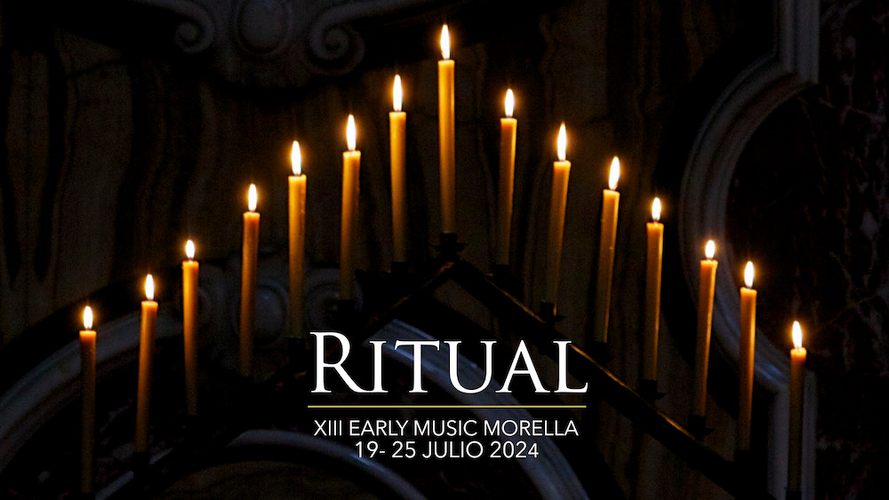XIII COURSE AND INTERNATIONAL FESTIVAL ON MEDIEVAL & RENAISSANCE MUSIC - FEMINAE
RITUAL - Early Music Morella celebrates its 13th edition with Ritual, coinciding with the 55th Sexenni de Morella, and delves into the spiritual world of tradition, custom, festivity, legend and folklore. Rituals are key elements in human culture, as they are transmitted from generation to generation and reflect the beliefs and values of a community. Through them, an interconnection between the human and the divine is sought and they provide a sense of identity and belonging in a society. They are a powerful way of bringing people together and keeping alive the traditions and customs of a people. For three centuries Morella has been celebrating the festivities of Sant Antoni, a ritual of struggle between good and evil with ancestral origins, as well as the various dances and music that converge in the Sexenni festivities. It was on 14th February 1673 when the civil authorities of the town, at the request of the people of Morella, swore a vow to the Virgin of Vallivana as a sign of gratitude after being spared from a terrible plague in 1672. The vow consisted of a commitment to celebrate a solemn Novenario every six years in honour of the Virgin.In this issue of EMM we will find melodies from the Misteri d’Elx, a markedly symbolic ritual in which the authority of the social group is sometimes affirmed and which not only reinforces the ties between the believer and God, but also the relationship between the individual and the social group of which he or she is a part. Songs of oral tradition linked to the cycle of life, the Dance of Death, Gregorian rituals, monastic chants, paraliturgical celebrations such as the Song of the Sibyl, where Saint Augustine attributes some ancient verses to the Eritrean Sibyl, leading her to place them in the liturgy of Christmas Eve, after appearing in the famous sermon of the enigmatic Carthaginian bishop Quodvultdeus. The miracles of Saint Mary and her more than 400 cantigas, Assumptionist dramas, the Visitatio Sepulchri, polyphonic masses, songs for dancing and the Officium Tenebrerum. A musical universe linked to rituality, a living tradition linked to the functionality and celebration of every moment of life. Traditional songs, lullabies, threshing songs, wedding songs, dances and of course liturgical songs, profane dances and dances of death, courtly melodies, music for oneself or for the collective, but always linked to life, when music was craftsmanship before it was art.All of this without ceasing to delve in this musical adventure into instrumental practices, measurement, theory and composition techniques in the Middle Ages and the Renaissance, the beginnings of musical writing and its notation techniques, oral and written music and their mutual influences, as well as music of an instrumental or religious nature. The combination of elements of historical music together with those of oral tradition form the essence of Early Music Morella, music to understand, communicate, listen to, interpret and enjoy from its knowledge and reasoning. In this edition, in addition to the Festival concerts and the instrumental and/or vocal improvement course, you will be able to enjoy a multitude of parallel activities: guided tours, exhibitions, conferences, Med_Ren Jamsessions, instrument building workshops and we will pay special attention to international promotion activities, social activities and the dissemination and promotion of early music for young people, the elderly and disadvantaged groups. It will be a pleasure to share it with all of you.
Practical info

Pricerange per day

Accommodation

Food

Main target group

Directions & transport

Surroundings

Average attendence per day

Art disciplines

